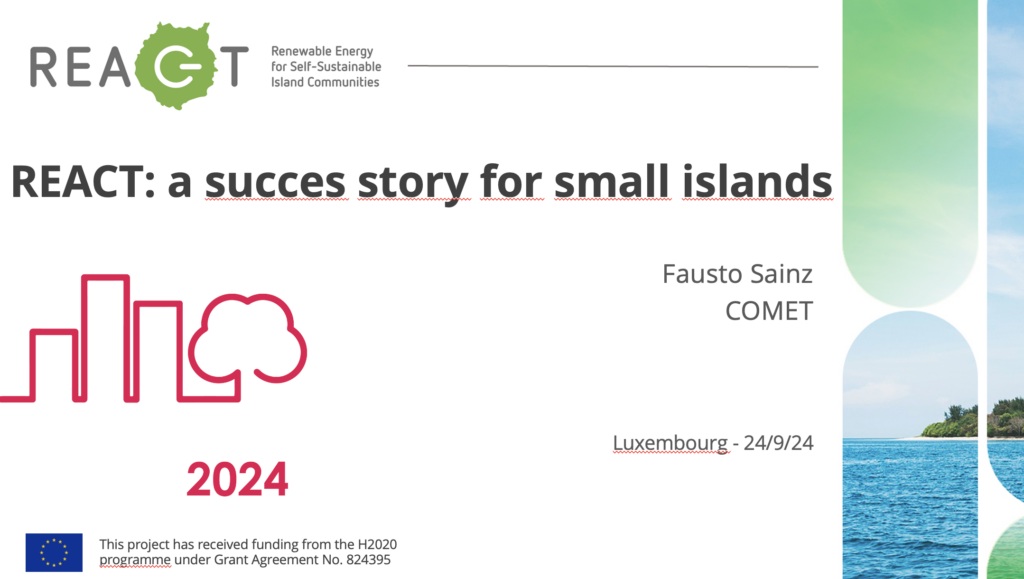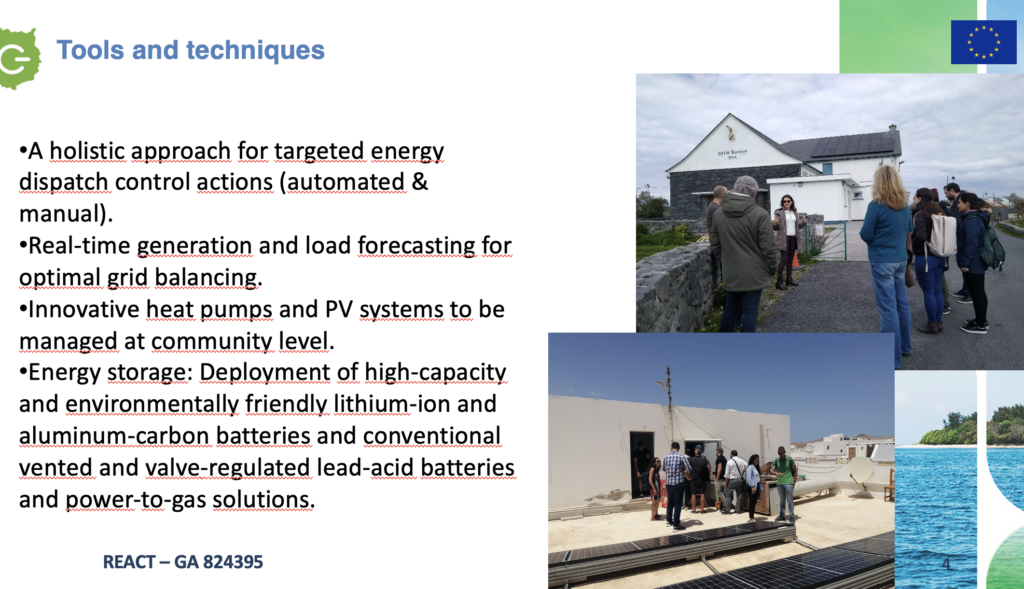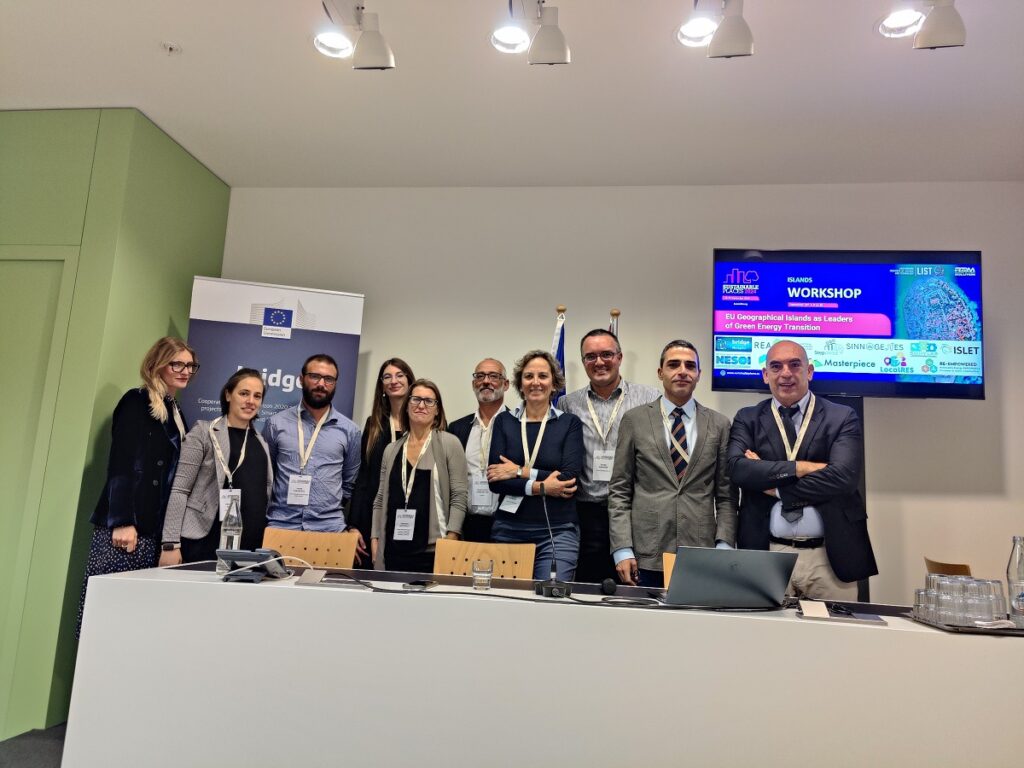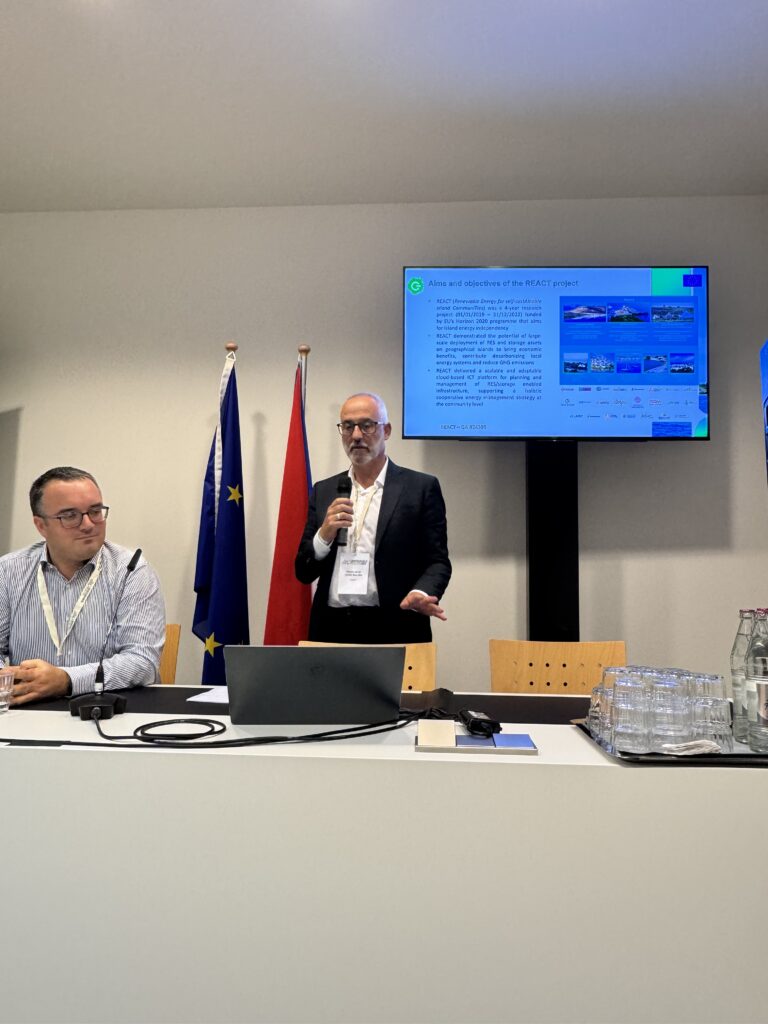Just one week ago REACT participated on the workshop “EU Geographical Islands as Leaders of Green Energy Transition” under the frame of Sustainable Places Conference.
In the context of the worldwide effort to tackle climate change and implement the transition to renewable energy sources, the European Commission is taking actions to make islands the locomotives of the EU energy transition. This is due to the specific features that islands present, such as geographic, economic, and climate conditions, having in most cases a worse interconnection with energy grids, high energy production costs, more difficult access to finance, higher energy poverty, and more significant climate-related risks compared to mainland regions. Moreover, energy consumption and production are unevenly distributed during the year as relevant peaks are related to the presence of tourists in certain seasons. The solutions for decarbonization of islands are therefore characterized by high energy, environmental, and socio-economic benefits and can in the future be replicated on the mainland, thus contributing to the EU energy transition.


This workshop brought together a selection of sister projects dealing with islands’ decarbonisation and clean energy transition, aimed at presenting their experience with the EU bodies, the financial schemes as well as their main technical outcomes.
The Sustainable Places 2024 workshop, similarly to what has been done during this same initiative starting from 2021, is looking forward to the reinforcement of the synergies already created among the H2020-HEU-LIFE-Interreg projects NESOI, IANOS, REACT, RE-EMPOWERED, SMHYLES, ISLET, STEP-WISE, LOCALRES, MASTERPIECE. The workshop was the perfect space to get input from lessons learned from other projects. We are all together in the net zero challenge and proud of Sustainable Places as a key event to connect the research efforts to make a step forward toward a sustainable future in the EU.


A very important take away from the workshop was that whatever information is presented in any device or application related to energy management must coincide with users needs. This is something long time known in usability and user experience. In turn this implies that developers must ensure the application interface satisfies users needs and the interface is easy to use thus facilitating its adoption. Consumer and citizen engagement was a pivotal point in the adoption of green energies and the human factor can never be ignored. We must be able to convey technical information to potential users of new energy developments in a way that is easily understandable. Similarly presenting applications that easy to use easy two understand and provide the necessary information can promote technology adoption.
A huge thank you to everyone who contributed to such an enriching experience, and special thanks to Giorgio Bonvicini for moderating the session. Together, we are moving closer to a greener future.